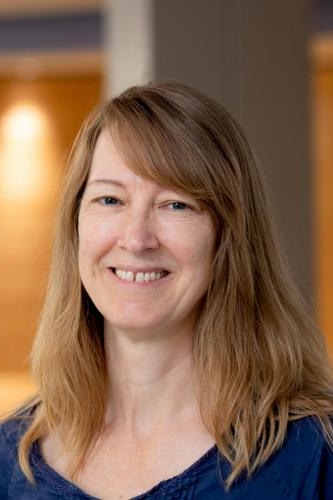
Elizabeth Fussell
Biography
Elizabeth Fussell is a sociologist and demographer whose research focuses on environmental drivers of migration and social inequalities in migration, health, and other post-disaster outcomes. She is an affiliate of PSTC and the Institute at Brown for Environment and Society (IBES). Fussell is currently investigating the long-term effects of the disaster following Hurricane Katrina on the residential mobility, health, and well-being of the residents of New Orleans using innovative methods and datasets in the Federal Statistical Research Data Center. She also studies the effects of hurricanes and other exogenous shocks on migration and internal migration systems in the United States, with a new focus on Puerto Rico. Her research is supported by the National Institutes of Health, the National Science Foundation, and the Russell Sage Foundation. She served as Editor-in-Chief of the Springer journal Population & Environment from 2017-2024. She is currently co-faculty director of the Equitable Climate Futures Initiative at Brown University and leads the Capacity Building Core for the Climate, Health, and Aging Innovation and Research Solutions for Communities (CHAIRS-C), a National Institute of Aging-funded climate change and health research center.
Affiliated Departments
Institute at Brown on Environment and Society
Photo Credit: petergoldbergphoto.com
Publications
Jack DeWaard, Alexander M. Din, Kathryn McConnell, Elizabeth Fussell. (2024). “Population change in wildfire-affected areas in the United States: Evidence from U.S. Postal Service residential address data.” Population Research and Policy Review. 43(4): 59, doi.org/10.1007/s11113-024-09904-4.
Kathryn McConnell, Elizabeth Fussell, Jack DeWaard, Stephan Whitaker, Katherine J. Curtis, Kobie Price, Lise St. Denis, and Jennifer Balch (2024). "Rare and highly destructive wildfires drive human migration in the U.S.” Nature Communications. 15(1), 6631, doi.org/10.1038/s41467-024-50630-4.
Kate Burrows, Kelvin C. Fong., Sarah R. Lowe, Elizabeth Fussell, Michelle L. Bell. (2023). “The impact of residential greenness on psychological distress among Hurricane Katrina survivors.” PLoS ONE 18(5): e0285510. doi.org/10.1371/journal.pone.0285510.
Jack DeWaard, Elizabeth Fussell, Katherine J. Curtis, Stephan D. Whitaker, Kathryn McConnell,* Kobie Price,* Michael Soto,* and Catalina Anampa Castro.* (2023). “Migration as a vector of economic losses from disaster-affected areas in the United States.” Demography. 60(1):173-199. doi.org/10.1215/00703370-10426100.
Jack DeWaard, Mathew Hauer, Elizabeth Fussell, Katherine J. Curtis, Stephan D. Whitaker, Kathryn McConnell,* Kobie Price,* David Egan-Robertson, Michael Soto,* Catalina Anampa Castro.* (2021). “User Beware: Concerning findings from the post 2011-2012 U.S. Internal Revenue Service migration data.” Population Research and Policy Review. 41, 437-448. doi.org/10.1007/s11113-021-09663-6.
Mathew Hauer, Elizabeth Fussell, Maxine Burkett, Maia Call, Kali Abel,* Valerie Mueller, Robert McLeman, David Wrathall. (2020). Sea Level Rise and Human Migration. Nature Reviews Earth and Environment. 1(1): 28–39. doi.org/10.1038/s43017-019-0002-9.
Elizabeth Fussell, Sara R. Curran, Matthew Dunbar, Michael A. Babb,* LuAnne Thompson, and Jacqueline Meijer-Irons.* (2017). “Weather-related hazards and population change: A study of hurricanes and tropical storms in the U.S., 1980-2012.” Annals of the American Academy of Political and Social Sciences, 669: 146-167. doi.org/10.1177/0002716216682.
Elizabeth Fussell. (2015). “The Long-Term Recovery of New Orleans’s Population after Hurricane Katrina.” American Behavioral Scientist 59(10): 1231-1245. https://doi.org/10.1177/00027642155911.
Katherine Curtis, Elizabeth Fussell and Jack DeWaard. (2015). “Recovery Migration after Hurricanes Katrina and Rita: Spatial Concentration and Intensification in the Migration System” Demography 52(4): 1269-1293, doi.org/10.1007/s13524-015-0400-7.
Elizabeth Fussell, Lori M. Hunter, and Clark Gray. (2014). “Measuring the Environmental Dimensions of Human Migration: The Demographer’s Toolbox.” Global Environmental Change 28: 182-191. doi.org/10.1016/j.gloenvcha.2014.07.001.
Elizabeth Fussell, Katherine J. Curtis, and Jack DeWaard. (2014). “Recovery Migration to the City of New Orleans after Hurricane Katrina: A Migration Systems Approach.” Population & Environment 35: 305-322. doi.org/10.1007/s11111-014-0204-5.
Elizabeth Fussell. (2011). “The Deportation Threat Dynamic and Victimization of Latino Migrants: Wage Theft and Street Robbery.” The Sociological Quarterly 52(4): 593-615, doi.org: 10.1111/j.1533-8525.2011.01221.x.
Elizabeth Fussell, Narayan Sastry, Mark VanLandingham. (2010). “Race, Socio-economic Status, and Return Migration to New Orleans after Hurricane Katrina.” Population & Environment 31: 20-42. doi.org/10.1007/s11111-009-0092-2.